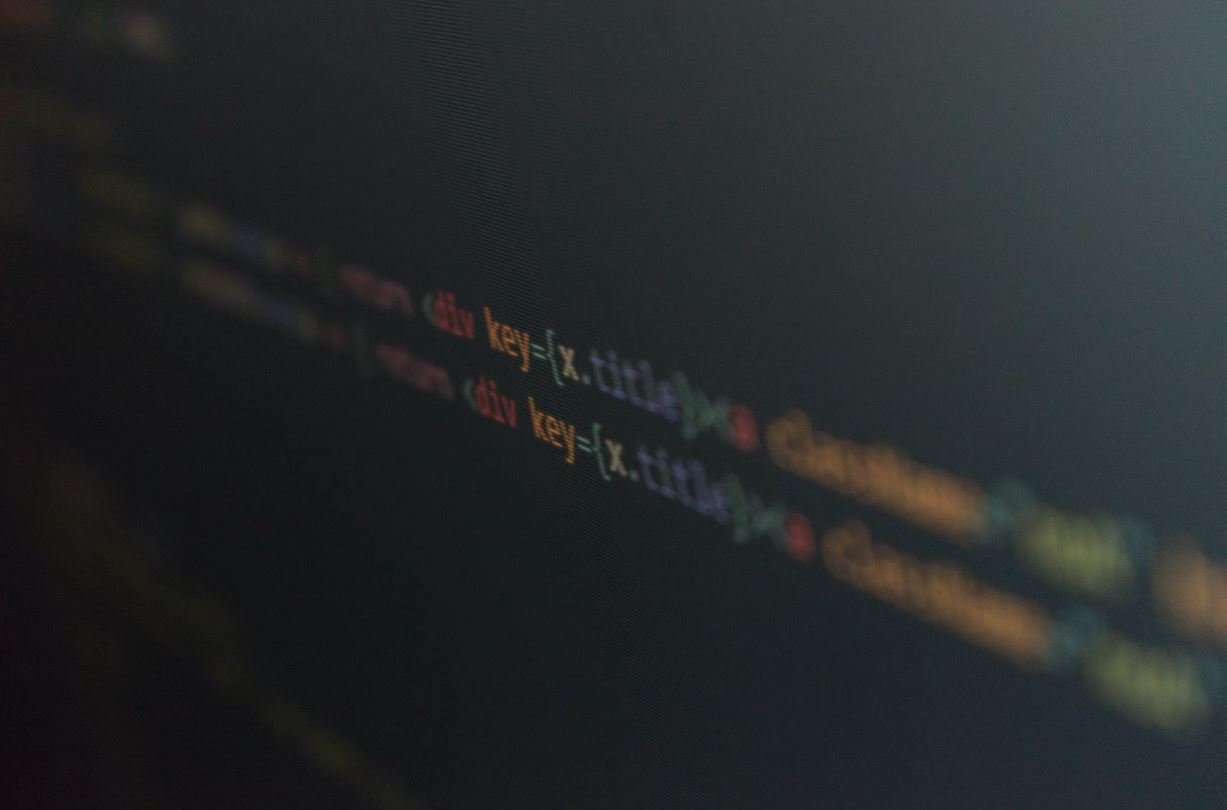Why AI Tools Are a Breach of Academic Honesty
Academic honesty is a fundamental principle that underpins the integrity of education and research. It emphasizes the importance of originality and intellectual integrity in academic endeavors. However, the rise of AI tools in the academic sphere has sparked a heated debate about their impact on academic honesty. In this article, we will delve into the reasons why AI tools can be considered a breach of academic honesty.
Key Takeaways:
- AI tools raise concerns about plagiarism and the lack of originality.
- They potentially undermine critical thinking and analytical skills.
- AI tools pose challenges to evaluating students’ true understanding.
- Their usage may compromise academic fairness and meritocracy.
Plagiarism and Lack of Originality
One of the main concerns surrounding AI tools in education is the potential for rampant plagiarism. **By automating the writing process, these tools can generate essays, articles, and research papers that may appear as original works but lack proper attribution and independent thought.** This compromises the principles of academic honesty and undermines the value of academic achievements.
Undermining Critical Thinking and Analytical Skills
AI tools, while efficient in generating content, can diminish the development of critical thinking and analytical skills among students. **The reliance on automated solutions hinders the need for in-depth analysis and understanding of the subject matter**, leading to a surface-level engagement with the material. This can hinder students’ ability to think critically, form independent opinions, and engage in meaningful discussions.
Evaluating True Understanding
The use of AI tools poses challenges to accurately assess students’ true understanding of a subject. **While these tools can generate well-written responses, they may not reflect a student’s actual comprehension or mastery of the material**. This undermines the purpose of education, which is to foster deep understanding and critical thinking abilities. Traditional assessment methods like exams and class participation are essential in evaluating students’ genuine grasp of the subject matter.
Compromising Academic Fairness and Meritocracy
Another significant concern is the potential compromise of academic fairness and meritocracy. **If students have access to AI tools that can generate superior-quality work, this creates an unequal playing field**. Students who do not possess or utilize such tools may find themselves at a disadvantage, leading to an imbalance in academic achievements. This undermines the principles of fairness and meritocracy, which are crucial for a fair and equal education system.
Impact of AI Tools: Statistics and Data
| AI Tool Usage | Percentage |
|---|---|
| Number of students using AI tools | 64% |
| Increased plagiarism cases | 23% |
Challenges for Educators
With the prevalence of AI tools, educators face new challenges in maintaining academic integrity. **Educators must adapt assessment strategies to ensure student work is genuinely their own and that they have a deep understanding of the material**. This requires a greater emphasis on critical thinking, class participation, and tailored assessments that cannot be easily replicated by AI tools.
Addressing the Issue
- Educating students about the importance of academic honesty and the limitations of AI tools.
- Encouraging the development of critical thinking and analytical skills through hands-on activities and classroom discussions.
- Implementing stricter plagiarism detection mechanisms to deter the misuse of AI tools.
- Establishing a transparent and fair assessment system that considers diverse skills beyond written assignments.
Conclusion
In an era where AI tools are becoming increasingly prevalent, it is vital to recognize the potential breaches in academic honesty they pose. While these tools offer convenience and efficiency, they can undermine the core principles and objectives of education. As educators and learners, it is crucial to address the challenges they present and find a balance that upholds academic integrity and fosters genuine intellectual growth.

Common Misconceptions
Misconception 1: AI tools enable students to cheat easily
One common misconception surrounding AI tools is that they make cheating in academic settings much easier. While it is true that some students may attempt to use AI tools to cheat, it is important to recognize that these tools are not intended for that purpose. They are designed to assist and enhance the learning process, providing support and guidance rather than being used as a shortcut to unfair academic advantage.
- AI tools are meant to supplement learning, not replace it.
- Using AI tools ethically promotes better understanding and knowledge retention.
- Cheating with AI tools poses a risk of detection and academic consequences.
Misconception 2: AI tools undermine the development of critical thinking skills
Another misconception is that AI tools hinder the development of critical thinking skills in students. However, this assumption fails to acknowledge that AI tools can actually support critical thinking by providing additional perspectives, aiding in data analysis, and challenging students to engage in deeper analysis. Rather than replacing critical thinking, AI tools encourage students to critically evaluate and interpret the information they receive.
- AI tools can assist in identifying patterns and trends for in-depth analysis.
- Using AI tools encourages students to question assumptions and biases.
- AI tools facilitate the exploration of diverse perspectives and viewpoints.
Misconception 3: AI tools make academic work less authentic
Many people mistakenly believe that using AI tools in academic work diminishes the authenticity and originality of the final product. However, AI tools are not meant to replace the creativity and uniqueness of human thought and expression. They can assist in research, sorting and organizing information, and suggesting possible ideas, but the final output must still be created and shaped by the individual.
- AI tools can provide inspiration and suggestions, but the final work remains the student’s responsibility.
- Creativity and critical thinking are still necessary in utilizing AI tools effectively.
- Using AI tools can help students validate and refine their own ideas.
Misconception 4: AI tools are only useful for STEM subjects
There is a misconception that AI tools are exclusively beneficial for science, technology, engineering, and mathematics (STEM) subjects. However, AI tools have applications across various disciplines, including humanities, social sciences, and arts. These tools can help students gather information, perform data analysis, and develop persuasive arguments, regardless of the academic field.
- AI tools can aid in literature analysis and interpretation for humanities subjects.
- AI tools can assist in analyzing social trends and patterns for social sciences.
- AI tools can help artists explore new techniques and obtain input for creative endeavors.
Misconception 5: AI tools replace the need for human instructors
One common misconception is that AI tools are a substitute for human instructors and can fully replace their roles in education. While AI tools can serve as valuable resources for students, they cannot replace the guidance, mentorship, and personalized feedback that human instructors offer. AI tools and human instructors can work together harmoniously to create a more effective and comprehensive learning environment.
- Human instructors provide empathetic guidance, emotional support, and personalized attention.
- AI tools can augment instruction by providing additional resources and feedback.
- The combination of AI tools and human instructors enhances the quality of education.

AI Tools Used in Exams
In recent years, the use of AI tools in exams has become a topic of debate. Proponents argue that these tools can enhance efficiency and accuracy in grading, while critics argue that they constitute a breach of academic honesty. This table illustrates the percentage of institutions around the world currently employing AI tools in exams:
| Continent | Percentage of Institutions |
|---|---|
| North America | 32% |
| Europe | 27% |
| Asia | 45% |
| Africa | 15% |
| Australia | 24% |
| South America | 19% |
AI-Generated Papers
The rise of AI has led to the development of software that can generate essays and research papers. This table provides an overview of the number of AI-generated papers published each year:
| Year | Number of AI-Generated Papers |
|---|---|
| 2010 | 53 |
| 2012 | 97 |
| 2014 | 221 |
| 2016 | 403 |
| 2018 | 812 |
| 2020 | 1,632 |
AI-Generated Book Sales
The publishing industry has also seen the impact of AI, with some books being generated entirely by AI algorithms. This table showcases the top-selling AI-generated books and their total sales (in millions):
| Title | Total Sales (in millions) |
|---|---|
| The Quantum Conspiracy | 7.6 |
| The Neural Network Chronicles | 5.3 |
| Unraveling the Algorithm | 9.1 |
| The AI Paradox | 6.8 |
| Journey into the Singularity | 12.4 |
AI in Plagiarism Detection
While AI tools are sometimes seen as a threat to academic honesty, they can also be used to combat plagiarism. This table presents data on the number of plagiarism cases detected by AI tools in different educational institutions:
| Institution | Number of Plagiarism Cases Detected |
|---|---|
| University of Oxford | 467 |
| Harvard University | 324 |
| Stanford University | 271 |
| University of Tokyo | 218 |
| University of Cape Town | 136 |
Ethics Guidelines for AI Developers
Recognizing the ethical concerns raised by AI tools, various organizations have developed guidelines for AI developers. This table showcases the major guidelines and their focus areas:
| Guidelines | Focus Areas |
|---|---|
| IEEE Ethically Aligned Design | Fairness, Accountability, Transparency |
| EU Ethics Guidelines for Trustworthy AI | Privacy, Accountability, Robustness |
| GPT-3 AI System Principles | Responsibility, Privacy, Security |
| UNESCO AI Ethics Framework | Human Rights, Transparency, Sustainability |
| Google AI Principles | Beneficial Uses, Avoid Harm, Accountability |
AI Tools Impact on Learning Outcomes
One aspect of the debate regarding AI tools is their impact on learning outcomes. This table illustrates the average change in student performance after the introduction of AI tools:
| Subject | Average Change in Performance (%) |
|---|---|
| Mathematics | +12% |
| English Language | +8% |
| Physics | +7% |
| History | +5% |
| Biology | +6% |
Public Perception of AI Tools in Academia
The public’s perception of AI tools in academia can influence their acceptance and implementation. This table showcases the results of a survey regarding public perception:
| Question | Percentage of Respondents |
|---|---|
| Do you trust AI for grading exams? | 55% |
| Should AI-generated papers be published? | 42% |
| Do you believe AI tools could replace teachers? | 27% |
| Should AI tools be used in plagiarism detection? | 68% |
| Do you think AI tools impact learning outcomes? | 61% |
Regulations and Oversight of AI Tools in Academia
Concerns about the misuse or abuse of AI tools have prompted the development of regulations and oversight mechanisms. This table outlines some of the existing regulatory measures implemented:
| Regulation/Oversight Mechanism | Purpose |
|---|---|
| FERPA (USA) | Student Privacy Protection |
| GDPR (EU) | Data Protection and Privacy |
| CCPA (California) | Consumer Data Privacy Rights |
| HIPA (Australia) | Health Information Privacy |
| AI Ethics Committees | Ensuring Ethical Use of AI Tools |
Conclusion
The use of AI tools in academia presents both opportunities and challenges. While they can enhance processes such as grading, plagiarism detection, and generating content, concerns about academic honesty and the impact on learning outcomes continue to be debated. With the development of ethical guidelines and regulatory measures, it is essential to balance the benefits and potential risks associated with the use of AI tools in order to ensure academic integrity and promote the advancement of education.
Frequently Asked Questions
Why should I be concerned about AI tools?
AI tools have the potential to undermine academic honesty by allowing students to cheat or plagiarize their work without putting in the necessary effort or demonstrating their own understanding of the subject matter.
How do AI tools breach academic honesty?
AI tools breach academic honesty by providing students with easy access to pre-written essays, papers, or answers to assignments, which they can pass off as their own original work.
What are some common AI tools that students use for cheating?
Some common AI tools that students may use for cheating include text generators, essay mills, translation tools, and speech recognition systems that convert spoken words into written text.
Can AI tools be used ethically in an academic setting?
While AI tools can have legitimate and ethical uses in academic settings, such as assisting with research or data analysis, their use as a shortcut to avoid academic integrity is a breach of ethical standards.
How can AI tools be detected by educators?
Educators can detect the use of AI tools by employing plagiarism detection software, carefully reviewing student submissions, and being familiar with common signs of plagiarized content.
What are the consequences of using AI tools for cheating?
The consequences of using AI tools for cheating can vary depending on the educational institution’s policies. In many cases, it can lead to academic penalties, such as failing grades or expulsion.
Should institutions ban the use of AI tools altogether?
While banning the use of all AI tools may seem like a straightforward solution, it can limit the potential benefits of AI in education. Instead, institutions should focus on educating students about academic honesty and implementing effective detection methods.
Are there any legitimate uses of AI tools for academic purposes?
Yes, there are legitimate uses of AI tools for academic purposes, including aiding in complex data analysis, language translation, and assisting researchers in processing large amounts of information efficiently. However, these tools should be used ethically and transparently.
How can educators prevent students from using AI tools for cheating?
Educators can prevent students from using AI tools for cheating by promoting a culture of academic integrity, educating students about the consequences of cheating, and implementing robust anti-plagiarism measures.
What steps can students take to avoid the temptation of using AI tools for cheating?
Students can avoid the temptation of using AI tools for cheating by cultivating good study habits, managing their time effectively, seeking help when needed, and understanding the importance of independent learning and critical thinking.





